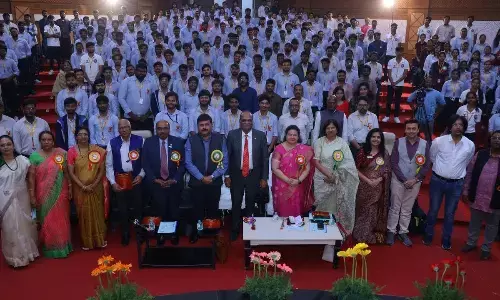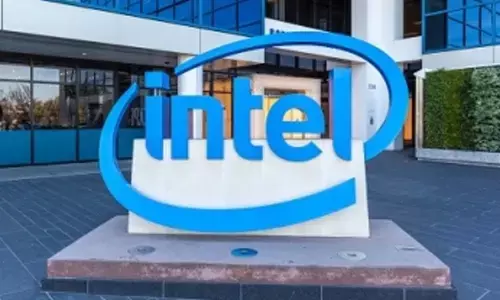NEP for surge in entrepreneurship

NEP for surge in entrepreneurship
The National Education Policy, 2020 has not only garnered support from education experts and industry giants but has also invited confusion, apprehension and criticism by students and educationalists.
The National Education Policy, 2020 has not only garnered support from education experts and industry giants but has also invited confusion, apprehension and criticism by students and educationalists. On one hand, technical skills and multi-disciplinary courses have been projected to be in demand, the future of social sciences degrees, for employment opportunities, remains questionable.
Dr D Chennappa, Professor of Commerce at Osmania University, Hyderabad spoke with The Hans India about the apprehensions of teachers and students over the National Education Policy 2020, and the worrisome future of core subjects and social sciences as the central government is putting efforts to promote technical, multi-disciplinary subjects.
Many industry experts have claimed that through inclusion of NEP, 2020, the country will witness a surge in entrepreneurs and self-employed individuals. Dr Chennappa said that the increase in self-employed people is taking away the focus from the fact there is a lack of regularised government jobs.
"While there may be more people opting for apps-based start-ups or professional business, NEP is driving students not to be dependent on the government for regularised jobs. This is the intention of NEP.
But the intention of (educators and faculty) is that while employment is a different aspect, students' interest towards core, fundamental knowledge must be ensured and application oriented social science curriculum must also come out."
Dr Chennappa said every major industry is shifting towards automation and cloud computing, the future of core subjects such as commerce and humanities remains unknown. The humanities are not at a disadvantageous position but rather need to catch up with the demand from the industry and upgrade the skills in tune with 21st century. He says that one cannot evade or run away from complex technologies such as Artificial Intelligence or Drone technology, as the world is ever evolving.
The policy makers claim NEP is a holistic approach towards some of the new concepts like multidisciplinary courses and technical training. But to undergo this students may also have to face some pressure also," Dr Chennappa opined.
"In my personal opinion, this multidisciplinary approach is good to an extent but students must also learn fundamental subjects. While students are studying subjects such as mechanical engineering they may also be introduced to psychology, entrepreneurship, population studies. The objective must be to retain the core subject," he added.
The add-on subjects are beneficial, the focus should not be taken away from the core syllabus of a stream. In 2020, the University Grants Commission (UGC) unveiled Learning Outcome-based Curriculum Framework (LOCF) for all the undergraduate courses, in which students will be assessed using written and practical exams, project work, assignments, and presentations. Each theory subject will be of four credits and practical including one game and one athletic or sports event for two credits each.
The apex body of education had also announced that the idea of LOCF is to decide the desired outcome within the framework of the current Choice Based Credit System (CBCS) for undergraduate and postgraduate programmes, and then design the curriculum to obtain these outcomes. The outcomes will be determined in terms of skills, knowledge, understanding, employability, graduate attributes, attitudes, values, etc., gained by students upon the completion of the course.
On the introduction of skill-based technical courses, Dr. Chennappa says, "Our intention is, whatever the additional subjects are there, skill enhancement must be introduced without disturbing the core subjects. For example, if there is a BCom student, without teaching much of accountancy, and are simply teaching them about environmental sciences or Yoga, the student will not be a Bachelor of Commerce holder, it will be a simple bachelor's degree."
Many teachers and students have expressed dissatisfaction over the lack of focus being given to social sciences subjects under the new NEP, he said.
"The central government can issue guidelines but the implementation part has to be taken up by the state governments. But some of the states are not taking the call to implement National Education Policy. What I believe is that the policy (NEP 2020) is good, but the financial support has to come from the central government and the state government to be able to implement it," he said.
When asked about the response of the students and the staff at Osmania university over NEP 2020, Dr. Chennappa said that there is much confusion on the implementation of the programme and that awareness needs to be created on both the positive and the negative aspects of it.











